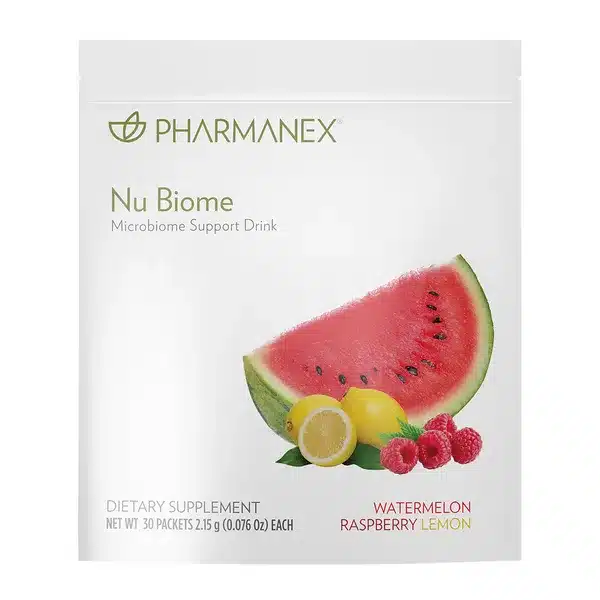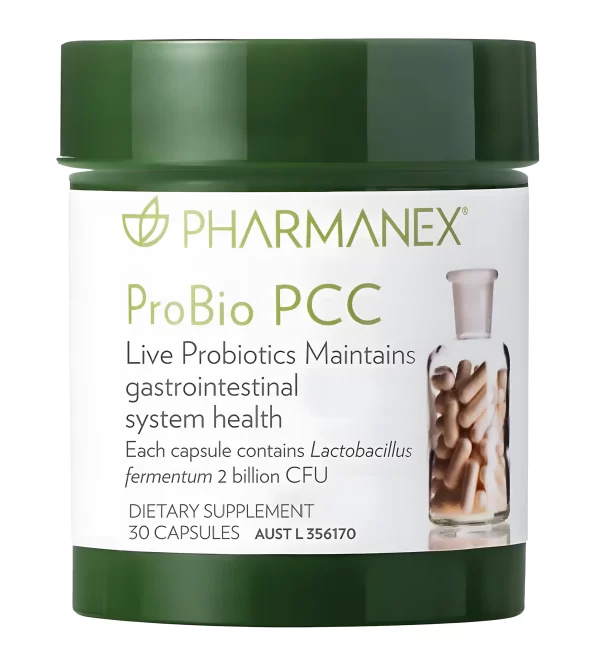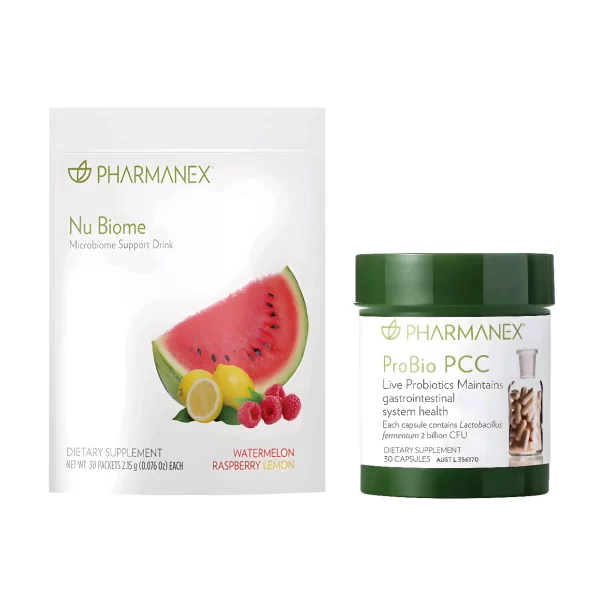We frequently hear about the impact that Flora can have on our health with a focus, on three key terms; Prebiotics, Probiotics and Postbiotics. Today lets delve deeper into these concepts.
There is a growing body of research dedicated to understanding the connection between gut health and overall well being. One intriguing area of study involves prebiotics and probiotics referred to as beneficial bacteria.
Within our tract there resides a community of 100 trillion bacteria. However factors such as choices, excessive alcohol consumption, antibiotics use, hormonal changes and stress can disturb the delicate balance of these bacteria.
Reports suggest that 40% of individuals encounter gut related issues. Consequently it’s not uncommon to come across diets, products or lifestyle modifications promising gut health.
Apart from prebiotics and probiotics another essential component is postbiotics.
1. Prebiotics
What exactly are prebiotics?
Prebiotics are nutrients that nourish the gut microbiota while also being broken down by it – a process. The byproducts resulting from this breakdown are then released into our bloodstream, for health benefits.
There are kinds of prebiotics, with falling under the category of carbohydrates.
Common prebiotics consist of:
Fructans: like inulin and oligofructose (FOS) which may help stimulate lactobacilli and other bacterial species.
Oligogalactans: known to stimulate bifidobacteria and lactobacilli two bacteria types.
Starch and glucose derived oligosaccharides: a resistant starch that produces beneficial butyric acid for our health.
What is the role of prebiotics?
Prebiotics can positively impact the gut microbiomes composition. Consuming prebiotics has been found to boost the system by increasing protective microbe numbers. Additionally research indicates they can reduce microbe levels.
Foods with probiotics
We can enhance our intake through food choices. Some top sources of prebiotics include;
Chicory Root: 68% fiber content is inulin.
Garlic: promotes bifidobacteria growth.
Onion: in inulin and oligofructose.
Artichokes: in inulin.
Dandelion Green: another source of inulin fiber.

Nu Skin Pharmanex Nu Biome is the revolutionary formula to help your gut with prebiotics

Nu Biome-Nu Skin Gut Health Formula
Gut check: intestinal unease getting you down? From aiding digestion to helping maintain your overall gut health, the microorganisms in your GI tract impact your wellness far beyond your stomach. Nu Biome helps harness the benefits of a healthy microbiome through a dual approach using pre-and postbiotics. It supports a healthy balance of good and…
2. Probiotics
What exactly are probiotics?
Probiotics are microorganisms that when consumed in moderation can offer health advantages to our bodies.
Probiotics are commonly available, as supplements. Can also be incorporated into foods and drinks.
Varieties of Probiotics
Although they are frequently referred to as “probiotics ” there exist types. The prevalent probiotic strains typically consist of:
Lactobacillus – often found in yogurt and cheese and naturally occurring in fermented foods
Bifidobacterium bifidum – commonly added to yogurt and cheese or present naturally in fermented foods or live yogurt
These probiotics can also be obtained from over the counter supplements, capsules, powders and beverages.
What benefits do probiotics offer?
Probiotics play a role in maintaining an equilibrium within the body; specific types of probiotics can aid digestion. Alleviate certain stomach related health issues.
Natural “beneficial” bacteria contribute to our well being. Supplementation may be beneficial for addressing other concerns especially following an illness.
It’s essential to recognize that different bacterial strains may offer advantages under circumstances while others may not. One product or food may not encompass all benefits.
8 Foods Rich in Probiotics
Live yogurt
Cheeses
Kefir (also spelled kephir or kefier)
Kefir, known as “kerir”, in Russian and “къундэпс” in Adyghe is a milk beverage to thinned yogurt or ayran created using kefir grains, a special type of thermophilic culture. This drink has its roots in the North Caucasus region in the areas of Cherkessia, Karachay and Balkaria near Mount Elbrus. It later spread from there to Russia and further to Europe, Canada and the United States. The preparation involves fermenting the milk of cows, goats or sheep with grains.

Kefir is a choice for breakfast, lunch and dinner across countries including Russia, Belarus, Estonia, Hungary, Latvia, Lithuania, Poland, Romania, Ukraine and the Czech Republic. It is valued as an nutritious beverage. In Norway Sweden, and Finland, where buttermilk based fermented drinks are common kefir also holds popularity.
Ethnic groups in Russia and Estonia especially appreciate kefir. In some regions/countries of Yugoslavia kefir is enjoyed at any time of day often paired with dishes like zelnik/zeljanica, burek, banitsa/gibanica Served alongside soups, during summertime.
Unrefined buttermilk
Black tea mushrooms: a type of bacteria used to make black tea
Sauerkraut
Fermented olives
Additionally there are dietary supplements containing beneficial bacteria in the form of capsules, tablets or powder.
Probio Pcc™-Nu Skin Active Probiotics
Pharmanex’s unique strain of Lactobacillus has shown an extraordinary resilience to the growth of undesirable organisms in the gastrointestinal tract. Clinical research shows an increase in the growth of beneficial bacteria in the digestive tract after the introduction of this particular bacteria strain. Its ability to survive passage through the harsh environment of the stomach,…
3. Postbiotics
What are postbiotics?
Postbiotics refer to the by products generated by gut bacteria that consume fiber or prebiotics. These bioactive compounds are produced during the fermentation process of probiotics.
What does postbiotic metabolites do?
Nutrition expert Alex Glover explains;
“Postbiotics are substances formed as a result of fermenting fibers, by our helpful bacteria. Compounds like lactate, butyrate and short chain fatty acids contribute to maintaining pH levels and mucous membranes while also showing potential for various other positive physiological effects.”
How can I incorporate postbiotics into my diet?
Obtaining postbiotics from diet sources is more challenging compared to obtaining prebiotics and probiotics.
Certain health food shops or online platforms may offer supplements. Alternatively we can introduce postbiotics and prebiotics into our diet through foods and beverages, in these components that later break down into prebiotics within the gut.
8 Foods That Support Our Gut in Producing Postbiotics
Yogurt: Many people opt for yogurt to increase the amount of gut bacteria in their diet. Yogurt is created by fermenting milk with bacteria like Lactobacillus bulgaricus and Streptococcus thermophilus making it a good way to enhance production through what you eat.
Tempeh: Another source of bacteria is tempeh, a soy product similar to tofu often used as a protein option in vegetarian and vegan dishes. Whats great about tempeh is that it provides prebiotics and postbiotics.
Yeast Bread: Besides containing levels of gluten yeast bread possesses qualities and can introduce friendly bacteria such as bifidobacteria, which could potentially help manage gut related issues.
Kefir: Kefir is another food in bacteria that transforms into kefiran (a postbiotic) upon consumption potentially offering positive effects on food allergies.
Kimchi Pickles: This variant of kimchi refers to the kind that has been salt fermented for a period carrying occurring bacteria, on its interior and surface.Cheese;, like yogurt cheeses such as cheddar, parmesan and howdah are rich in live bacteria that can reach the intestines and have positive effects.
Cheese: Similar to yogurt, cheeses such as cheddar, parmesan, and howdah are great sources of live bacteria that can reach the intestines and exert beneficial effects.
Kimchi: Refers to vegetables that are salted and seasoned with ingredients like chili powder, onions, garlic and ginger for secondary fermentation. It contains strains of Lactobacillus bacteria to those found in yogurt and cheese supporting gut health and overall bodily functions.
Kombucha Tea: Research explores the types of lactobacilli it contains and their associated benefits.
In contrast to prebiotics and probiotics, postbiotics are commonly found in foods; supplements provide a more direct source of these beneficial compounds.
4. Benefits
Exploring the Benefits of Prebiotics, Probiotics and Postbiotics:
They may aid in weight loss:
Studies suggest that differences in gut bacteria, between obese individuals could be influenced by diet. Research published in the British Journal of Nutrition indicates that probiotics might assist women in losing weight.
Researchers have found that adjusting the balance of gut bacteria could potentially strengthen the wall making it more challenging, for the gut to absorb fat molecules.
Improving your mood
It is known that our emotional well being can impact our digestion and recent studies suggest that our gut health can also influence our brain function. Research indicates that when individuals are stressed they tend to have gut bacteria compared to when they’re in a positive mood. Disruptive bacteria in the gut can interfere with nerve signals traveling from the stomach to the brain affecting sensations of fullness and stress levels. However there is emerging evidence that probiotics may have an impact on mood.
Scientists at UCLA School of Medicine have discovered that consuming probiotics may help alleviate feelings of anxiety and stress by influencing brain activity in areas for regulation. MRI scans conducted on participants revealed reduced sensitivity in brain circuits associated with anxiety after a month of supplementation.
Combatting colds and flu
In addition to remedies like vitamin C supplements for colds and flu incorporating supplements into your routine could be beneficial in reducing susceptibility to winter illnesses! A recent study observed that athletes, from New Zealand who took probiotics for a month were 40% less likely to experience colds and gastrointestinal issues compared to those who received a placebo.
They can help maintain normal blood pressure:
High blood pressure poses a risk for heart disease. While a balanced diet and regular exercise are known to help reduce blood pressure recent studies indicate that prebiotics may also have an impact. Prebiotics, which are fiber nutrients naturally present in foods like bananas, asparagus, parsley and garlic support the growth of probiotics. Researchers from Malaysia have discovered that prebiotics not aid in managing blood pressure but also in preventing the condition.
Their research revealed that prebiotics can lower cholesterol absorption from food leading to decreased cholesterol levels and lowered blood pressure.
They have the potential to address cystitis:
Traditionally individuals with cystitis have relied on increased water intake or cranberries to prevent infections. However emerging findings suggest that probiotics could offer assistance too. A comprehensive review of studies highlighted how probiotics help restore balance among bacteria in the vagina and urinary tract while potentially reducing cystitis episodes.
They can also play a role in regulating blood sugar levels:
Postbiotics are particularly recognized for their impact, on blood sugar management. Studies indicate that an imbalanced gut flora could contribute to obesity related issues.
Recent studies indicate that a substance called acyl dipeptide muramyl dipeptide, known as an ingredient might contribute to improving glucose tolerance by enhancing insulin sensitivity.
They can help support the immune system:
They possess properties that support this function including butyrate, a short chain fatty acid that boosts the production of T cells, in the tract. These T cells play a role in regulating responses.
In addition to this postbiotics can also stimulate the production of cytokines which’re messengers with anti inflammatory properties that help reduce inflammation levels and enhance immune reactions.
The significance of this effect was highlighted in a study conducted in 2010 involving 80 adults who were provided with probiotic supplements. The outcomes revealed a decreased susceptibility to infections and an enhanced capacity to generate antibodies for combating harmful toxins and bacteria.
They can help treat eczema:
A specific study demonstrated that individuals taking supplements for 8 to 12 weeks experienced alleviation of symptoms compared to those, in the placebo group who did not exhibit similar improvements.
They may help suppress appetite:
Along, with aiding in the battle against obesity by reducing blood sugar levels numerous research studies have emphasized the connection, between prebiotics and appetite. Specifically they propose that prebiotics might support individuals in reaching their weight loss objectives by curbing hunger cues.



